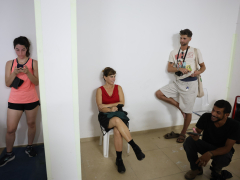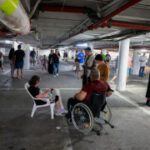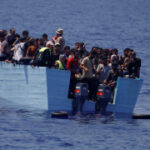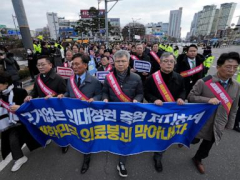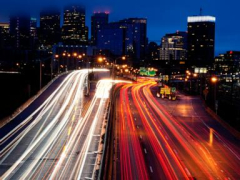When Iranian missiles began raining down on Israel, many residents scrambled for cover. Sirens wailed across the country as people rushed into bomb shelters.
But for some Palestinian citizens of Israel – two million people, or roughly 21 percent of the population – doors were slammed shut, not by the force of the blasts and not by enemies, but by neighbours and fellow citizens.
Mostly living in cities, towns, and villages within Israel’s internationally recognised borders, many Palestinian citizens of Israel found themselves excluded from life-saving infrastructure during the worst nights of the Iran-Israel conflict to date.
For Samar al-Rashed, a 29-year-old single mother living in a mostly Jewish apartment complex near Acre, the reality of that exclusion came on Friday night. Samar was at home with her five-year-old daughter, Jihan. As sirens pierced the air, warning of incoming missiles, she grabbed her daughter and rushed for the building’s shelter.
“I didn’t have time to pack anything,” she recalled. “Just water, our phones, and my daughter’s hand in mine.”
The panicking mother tried to ease her daughter’s fear, while hiding her own, gently encouraging her in soft-spoken Arabic to keep up with her rushed steps towards the shelter, as other neighbours climbed down the stairs, too.
But at the shelter door, she said, an Israeli resident, having heard her speak Arabic, blocked their entry – and shut it in their faces.
“I was stunned,” she said. “I speak Hebrew fluently. I tried to explain. But he looked at me with contempt and just said, ‘Not for you.’”
In that moment, Samar said, the deep fault lines of Israeli society were laid bare. Climbing back to her flat and looking at the distant missiles lighting up the skies, and occasionally colliding with the ground, she was terrified by both the sight, and by her neighbours.
A history of exclusion
Palestinian citizens of Israel have long faced systemic discrimination – in housing, education, employment, and state services. Despite holding Israeli citizenship, they are often treated as second-class citizens, and their loyalty is routinely questioned in public discourse.
According to Adalah-The Legal Center for Arab Minority Rights in Israel, more than 65 laws directly or indirectly discriminate against Palestinian citizens. The nation-state law passed in 2018 cemented this disparity by defining Israel as the “nation-state of the Jewish people”, a move critics say institutionalised apartheid.
In times of war, that discrimination often intensifies.
Palestinian citizens of Israel are frequently subjected to discriminatory policing and restrictions during periods of conflict, including arrest for social media posts, denial of access to shelters, and verbal abuse in mixed cities.
Many have already reported experiencing such discrimination.
In Haifa, 33-year-old Mohammed Dabdoob was working at his mobile repair shop Saturday evening when phones simultaneously all rang with the sound of alerts, triggering his anxiety. He tried to finish fixing a broken phone, which delayed him. He then rushed to close the shop and ran towards the nearest public shelter, beneath a building behind his shop. Approaching the shelter, he found its sturdy door locked.
“I tried the code. It didn’t work. I banged on the door, called on those inside to open – in Hebrew – and waited. No one opened,” he said. Moments later, a missile exploded nearby, shattering glass across the street. “I thought I was going to die.”
“There was smoke and screaming, and after a quarter of an hour, all we could hear were the sounds of the police and the ambulance. The scene was terrifying, as if I were living a nightmare similar to what hap

